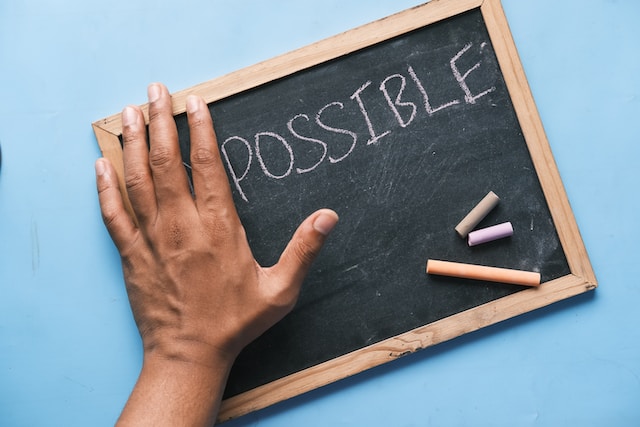
Have you ever considered how your body image is impacting your behavior?
We can all be self-critical at times. That’s human nature. However, is your body image impacting what you do and who you spend your time with?
Body image refers to a person’s perception of their own body’s appearance and the emotions associated with that perception. It plays a significant role in our behavior, impacting psychological well-being, relationships, goal achievement, and quality of life. Here’s how body image can influence behavior and ultimately our lives.
Self-Esteem and Confidence:
Positive body image is often linked to higher self-esteem and confidence. When we feel good about our bodies, we are more likely to have a positive outlook on life and engage in behaviors that reflect our self-worth. We embrace our bodies as they are. That doesn’t mean we believe our bodies are perfect. There may be areas we wish to improve. For example, we may desire to tone our bodies through exercise. Ultimately, we do not allow our imperfections to impact our self-esteem and confidence.
Health Behaviors:
When we have a positive body image we are more inclined to engage in healthy behaviors such as consistent activity, balanced eating, getting good sleep, staying hydrated, and making time for consistent self-care.
Conversely, a negative body image can lead to unhealthy behaviors like extreme dieting, over-exercising, or avoiding physical activity altogether due to fear of judgement.
Goal Setting and Achievement:
Body image can impact the goals we set for ourselves. If we have a positive body image we are more inclined to set realistic goals that are related to self-improvement and personal growth. If our body image is negative, we may avoid setting goals or set unrealistic goals in an attempt to dramatically change our appearance.
Social Interaction:
Body image can affect how we interact with others. When we have a positive body image, we are more apt to be socially engaged. Conversely, if we feel uncomfortable about our appearance we may avoid social situations. This can make it difficult to form and maintain meaningful connections with others.
Career and Education:
Body image can influence career choices and educational pursuits. A positive body image can empower us to pursue careers and educational paths we are passionate about, regardless of societal norms. If we feel uncomfortable, we might pursue career and education choices that are influenced by perceived limitations based on appearance.
Performance Anxiety:
Performance anxiety is often a byproduct of a negative body image. This can manifest in avoiding public speaking or hesitating to take leadership roles due to concerns about how others will perceive our appearance.
Psychological Well-Being:
Body image is closely linked to mental health. A negative body image can contribute to feelings of depression, anxiety, and low self-worth. These emotions can suppress our motivation, decrease our ability to focus on goals, and lead to a decreased sense of achievement.
Coping Mechanisms:
Emotional eating and substance abuse are common coping mechanisms for a negative body image.
Improving body image is a process that involves cultivating a positive and realistic perception of our body. Here are some strategies and practices for improving body image:
- Practice Self-Compassion: Treat yourself as you would a friend or family member. Imperfections are what make us unique.
- Challenge Negative Thoughts: When negative thoughts arise, ask yourself if the thoughts are truthful. The majority of our thoughts are not facts, they are fabricated lies we tell ourselves.
- Focus on What Your Body Can Do: Shift your focus from how your body looks to what it can do. For example: My arms are strong. They enable me to hug loved ones.
- Focus on Health, Not Perfection: Shift your focus from achieving a “perfect” body to maintaining a healthy lifestyle. Prioritize a healthy diet, regular activity, good sleep, staying hydrated, and consistent self-care.
- Avoid Comparisons: Comparing yourself to others will only make you feel worse. Social media often presents an unrealistic version of reality. Consider this, the person you are comparing yourself to has insecurities as well. In fact, they may have a negative self-image. Focus on your own journey, not the journey of others.
- Protect Your Energy: Surround yourself with people that inspire and lift you up. Limit exposure to negative influencers, such as, social media, the news, people, and toxic environments.
- Practice Mindfulness: Engage in meditation, deep breathing, mental fitness exercises, or other mindfulness techniques to ground yourself and stay present, reducing negative self-talk.
- Dress Comfortably: Wear clothes that make you feel comfortable and confident. Choose clothing that suits your unique style and makes you feel good, instead of trying to conform to the latest trends.
- Cultivate Gratitude: Practice daily gratitude by reciting or writing down three things you’re grateful for. These are small things that we often take for granted, such as clean running water, central heat and air, access to healthy food, a roof over our head, etc. The more we practice gratitude, the more things we can find to be grateful for.
- Practice Positive Affirmations: Incorporate positive affirmations into your daily routine. Repeat phrases that reinforce self-love and body positivity, even if you don’t believe them initially. You’re training your brain to create a new neuropathway.
- Celebrate Achievements: Do a brain dump of all your accomplishments over the past year. You’ll be surprised at what you’ve accomplished.
- Seek Professional Help: If a negative body image is significantly impacting your well-being, consider seeking help from a mental health professional such as a counselor, therapist, or psychiatrist.
Improving body image takes time and effort. You will have good days and bad days. It’s a journey that involves shifting your mindset and adopting new habits. Celebrate small steps along the way. You’re a work in progress. Embracing your uniqueness will not only improve your self-worth but will attract others to you who value your true, authentic self.








